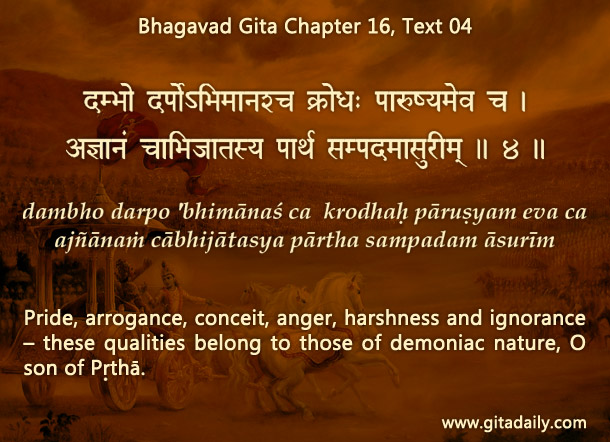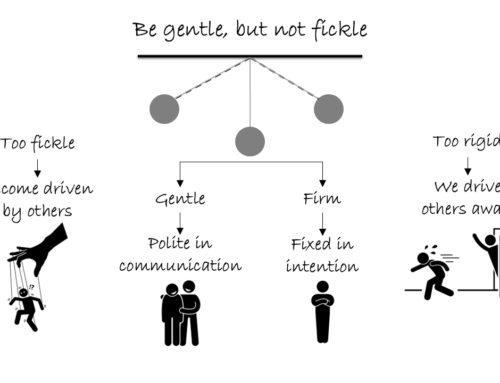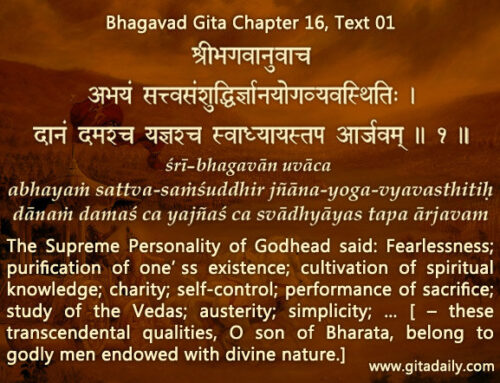The demoniac consider standing up to God to be courage, while the divine understand standing up for God to be courage.
No one likes to be considered a coward. Even those who lack courage often want to appear courageous. The Bhagavad-gita (16.6) describes broadly two kinds of human beings: those of divine nature, whom we can refer to as the divine, and those of demoniac nature, or the demoniac.
Both desire to be seen as courageous, yet they have opposing conceptions of courage. This phenomenon of differing—even opposing—value systems is highlighted metaphorically in Bhagavad-gita (2.69). The demoniac regard standing up to God, or whatever they perceive as the overarching principle of existence, as courage. They see this principle as unfair, brutal, or even diabolical, something that needs to be opposed and ultimately destroyed. This was the twisted determination of the demon king Hiranyakashipu, who resolved to perform immense austerities with the aim of eventually killing the almighty being, Vishnu.
Such a concept of courage drives them to acts of wanton destruction, fueled by the belief that by destroying godly people and sacred places, they will ultimately destroy God. This perverse courage leads them to barbarity. In contrast, the divine understand courage to mean standing up for God. They recognize that while God is omnipotent and needs no protection, humans, as parts of God, are meant to play roles in his plan.
God does not usually reveal his omnipotence directly in the normal course of human history; instead, he acts through human agents. Those who are virtuous and devoted can become instruments for divine will, helping to manifest divine wisdom and grace in the world for everyone’s benefit.
Recognizing this, the divine are prepared to stand up for God, ready to risk limb and life if necessary, to protect people and principles dedicated to God’s service and to uphold a godly order in the world. Such a concept of courage safeguards sacred principles and even the foundational values of humanity and decency from barbaric forces driven by demoniac ideas.
The world needs more of these courageous individuals if it is to be protected from descending into chaos and carnage. Arjuna was inspired with such courage to stand up for God, as conveyed in his concluding declaration (18.73). Understanding the Gita’s message and God’s all-benevolent nature can inspire us to cultivate this divine courage. We can, according to our abilities and situations, stand up for God by supporting principles, policies, and people who help humanity move closer to God and to godly behavior in all walks of life.
Summary:
- Everyone wants to be considered courageous, but different people have different ideas of what courage is.
- The demoniac view standing up to God as courage, while the divine see standing up for God as courage.
- The Bhagavad-gita’s wisdom can inspire all of us to be infused with divine courage, helping to establish godly values.
Think it over:
- Have you ever encountered or heard about someone with a demoniac concept of courage? How did their conduct impact society?
- What is the divine conception of courage, and how can it benefit society?
- In what area of life can you manifest this divine conception of courage?
***
16.04 Pride, arrogance, conceit, anger, harshness and ignorance – these qualities belong to those of demoniac nature, O son of Pṛthā.





Leave A Comment